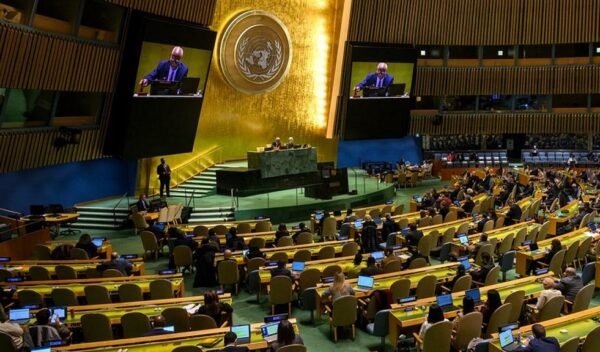UNGA Adopts Milestone Treaty Against Cybercrime: UN General Assembly adopts milestone cybercrime treaty

The UN General Assembly has adopted a landmark treaty against cybercrime. The treaty was adopted on December 24, 2024, and is the first international treaty of its kind. It is designed to combat cybercrime by improving international cooperation and providing a legal framework for countries to work together. The treaty has been praised by many as a major step forward in the fight against cybercrime.
On December 24, 2024, the United Nations General Assembly adopted the United Nations Convention against Cybercrime, marking the first international criminal justice treaty negotiated among UN member states in over two decades.
This legally binding convention addresses the significant risks posed by the misuse of information and communications technologies, which enable criminal activities on an unprecedented scale, speed, and scope. It focuses on protecting states, enterprises, and individuals from offenses such as terrorism, human trafficking, drug smuggling, and online financial crimes.
The convention emphasizes the need for technical assistance, capacity-building, and collaboration among states and other stakeholders. It also prioritizes justice for victims, especially vulnerable groups, and underscores the importance of human rights protection online.
UN Secretary-General António Guterres welcomed the adoption of the treaty, expressing his belief that it will promote a safe cyberspace and calling on all states to join it. The convention will open for signature at a formal ceremony to be hosted in Hanoi, Vietnam, in 2025, and will enter into force 90 days after being ratified by the 40th signatory.
This development represents a significant step forward in international efforts to combat cybercrime, fostering enhanced cooperation and providing a unified framework to address the challenges posed by cybercriminal activities globally.
The United Nations General Assembly (UNGA) has adopted a landmark treaty aimed at combating cybercrime, marking a significant milestone in international law. This treaty, known as the United Nations Convention against Cybercrime, is the first legally binding international instrument on cybercrime and has been developed over five years of negotiations among UN member states.
Key Highlights of the Treaty
International Cooperation: The convention establishes a comprehensive framework to enhance cooperation among nations in tackling various forms of cybercrime, including online financial crimes, human trafficking, and child exploitation. It emphasizes the need for sharing electronic evidence and technical assistance among states.
Legal Framework: This treaty is notable for being the first international criminal justice treaty negotiated in over 20 years. It aims to address the rapid increase in cybercrime, which is projected to cause global economic losses of approximately $8 trillion in 2023, potentially rising to $10.5 trillion by 2025.
Signing Ceremony: The convention will open for signature at a formal ceremony scheduled to take place in Hanoi, Vietnam, in 2025. It will enter into force 90 days after being ratified by the 40th signatory nation.
Broader Implications: The adoption of this treaty comes at a time when cyber threats are escalating globally, with a reported 75% increase in cyber attacks year-on-year as of late 2024. The convention aims to provide countries with the necessary tools to combat these threats effectively and protect vulnerable populations.
Statements from Officials
INTERPOL’s Secretary General Valdecy Urquiza highlighted the importance of international collaboration, stating that “only by moving forward together can countries effectively combat cybercrime” and that this convention provides a basis for enhanced cooperation across sectors.
UNODC Executive Director Ghada Waly described the adoption as a “major victory for multilateralism,” emphasizing its role in addressing serious crimes facilitated by technology.
This convention represents a crucial step forward in global efforts to combat cybercrime and protect individuals and societies from its adverse effects.

